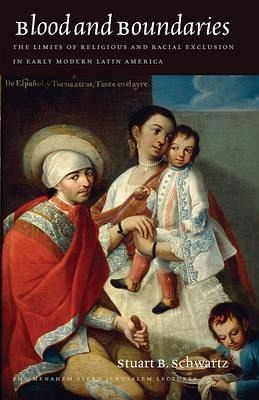
Blood and Boundaries
The Limits of Religious and Racial Exclusion in Early Modern Latin America

PAYBACK Punkte
22 °P sammeln!
"Blood and Boundaries: Religious and Racial Exclusions and their Limits in Colonial Latin America examines how Spain and Portugal's late Medieval policies of exclusion and discrimination based on religious origins and genealogy were transfered to Latin America where they were transformed and amplified into a system of social ranking based on race or color, but one modified by considerations of nobility, honor, profession, and service. Muslim and Jewish converts and their descendants were feared and distrusted as peoples considered ethnically distinct, but now religiously transformed, and thus ...
"Blood and Boundaries: Religious and Racial Exclusions and their Limits in Colonial Latin America examines how Spain and Portugal's late Medieval policies of exclusion and discrimination based on religious origins and genealogy were transfered to Latin America where they were transformed and amplified into a system of social ranking based on race or color, but one modified by considerations of nobility, honor, profession, and service. Muslim and Jewish converts and their descendants were feared and distrusted as peoples considered ethnically distinct, but now religiously transformed, and thus seeming to violate the concept of stable social categories and identities. "Cleanliness of blood" regulations discriminating against converts developed in order to limit their social mobility and their ability to hold office or to compete socially or financially. As Spaniards and Portuguese settled their overseas empires, these exclusionary policies continued to be applied to the converts who had settled in the colonies, but the regulations were now also instituted to control the subject indigenous and enslaved African populations, and over time, especially applied to the growing numbers of mestizos, peoples of mixed ethnic or "racial" origins who also seemed to overturn the idea of stable identities. Rather than concentrating on the three principal divisions of colonial society--Indians, Europeans, and people of African origins,as is usually done in studies of these colonial societies, the book examines the three minority groups of moriscos, conversos, and mestizos whose existence challenged the principles of social hierarchy. Despite the efforts of civil and church and state institutions to regulate, denigrate, and exclude, members of these affected groups often found legal and practical means to ignore, avoid, circumvent, adapt, or challenge the efforts to categorize and exclude them, creating in the process the dynamic societies of Latin America that despite the continual burdens of racial and religious exclusions, emerged in the nineteenth century"



